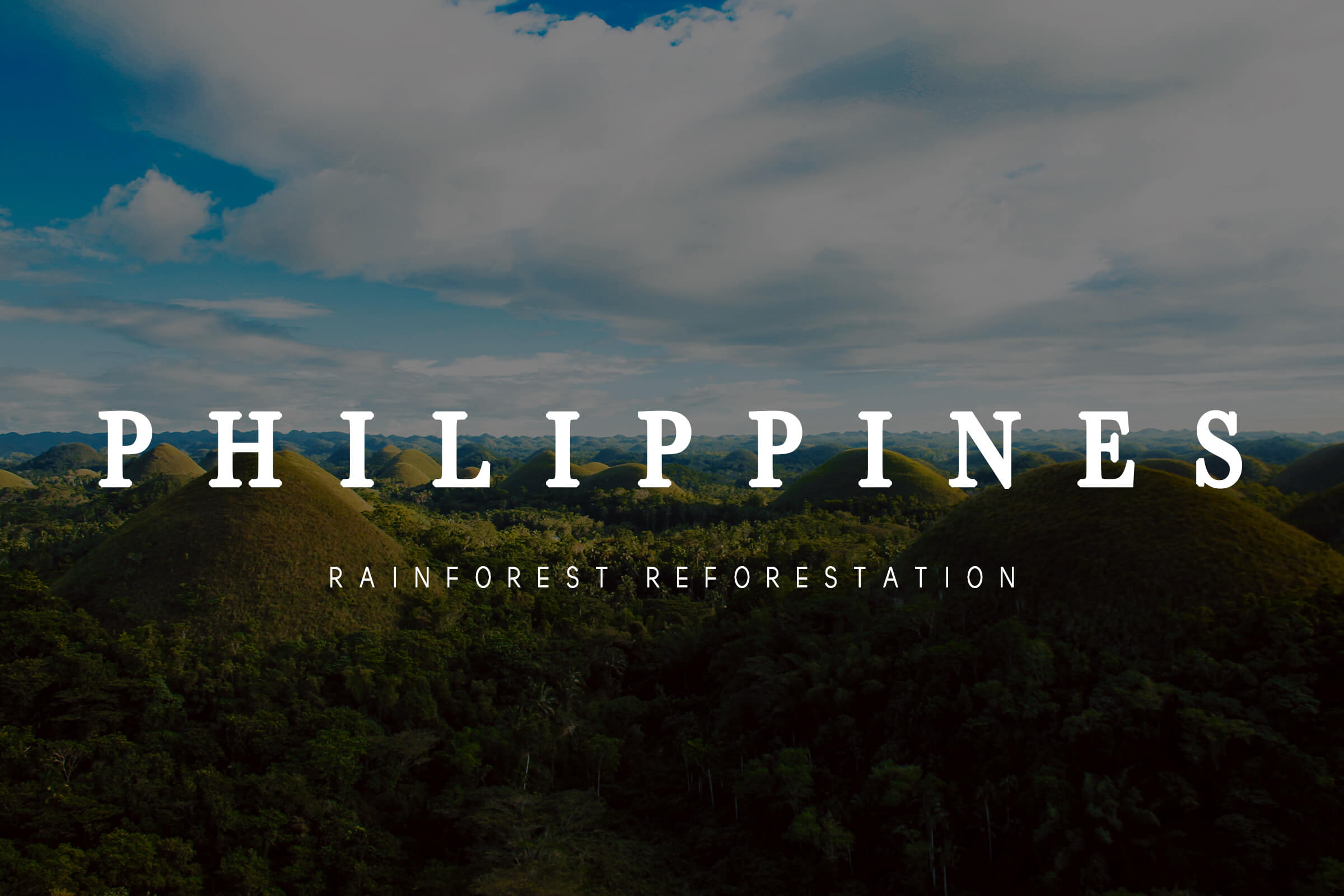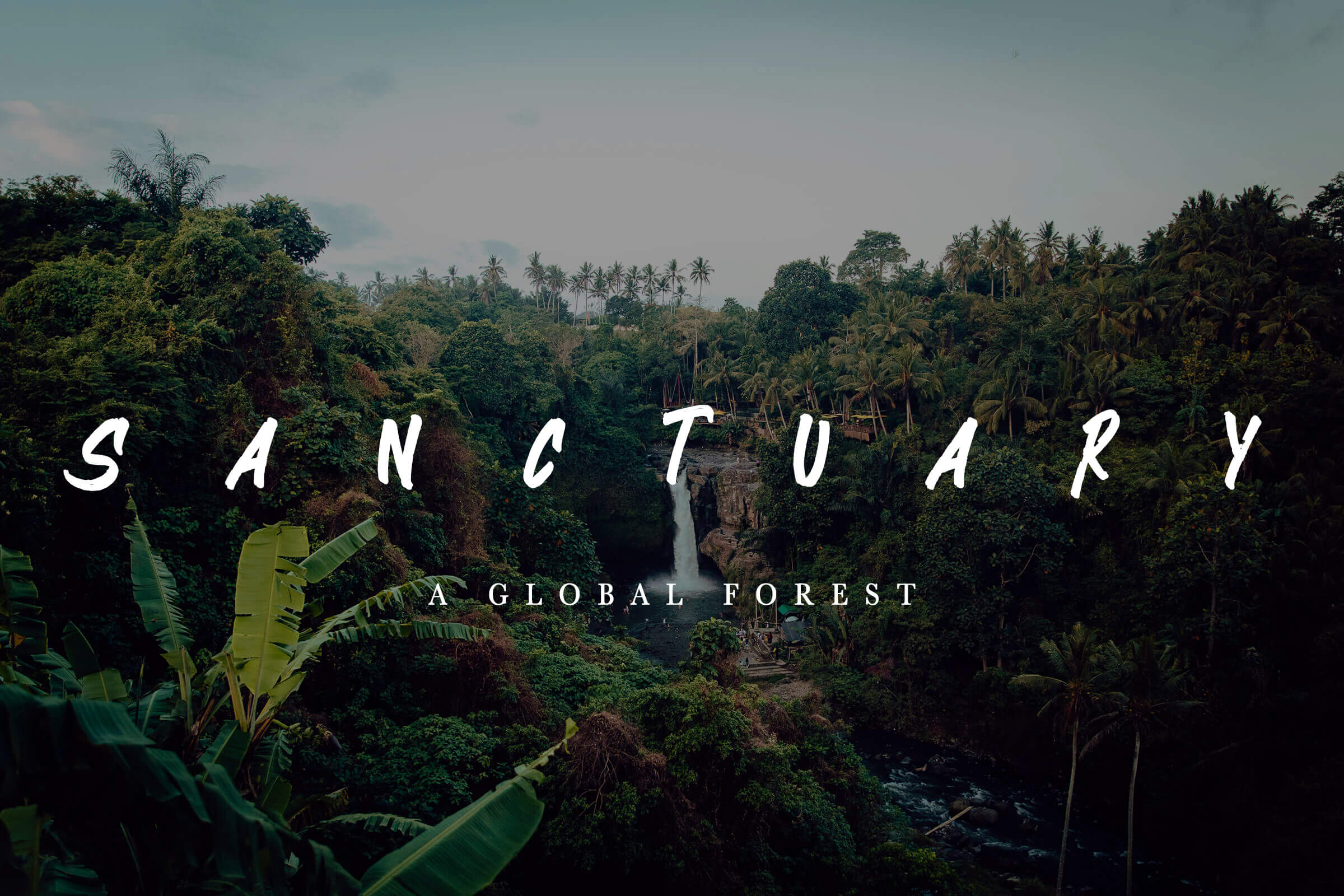Sanctuary
Premise
We aim to be one of the few completely carbon neutral brands in the world, and the primary way we intend to accomplish this is by planting trees to offset the carbon emissions that we create through our manufacturing/packaging/shipping.
In order to do this we have partnered with OneTreePlanted to plant trees worldwide, not only to offset our brands carbon footprint, but also to offset the footprint caused by shipping products to our customers, so you can rest easy knowing that your order is causing as small an impact on the environment as possible.
We have chosen 3 sites across the world, of great biological importance to plant our brands trees. Not only will these trees help to offset our carbon footprint, they will provide incomes for the local people of the areas, as well as reforesting areas of high biodiversity.

Peru
More than 60% of Peru is covered by the Amazon Rainforest, home to iconic species like the Jaguar, Macaw, Black Spider Monkey, and Poison Dart Frog. The Amazon River Basin is a vast region with 1.9 billion acres of rainforest and over 1,100 tributaries. The Amazon Rainforest is home to almost 30% of plant and animal species on Earth. And by holding an estimated 90-140 billion metric tons of carbon, its forests play a critical role in the fight against climate change.

Unfortunately, due to logging, unsustainable agriculture, and forest fires, it’s also a high risk zone for deforestation and degradation. Planting trees in the Amazon Rainforest will help conserve habitat for its iconic wildlife species, provide sustainable livelihoods to local people, and stabilise the climate.

This tree planting project aims to protect the Amazon's biodiverse primary forests and restore degraded land. Working with local farmers to establish sustainable agroforestry using shade-grown cocoa, native tree species, and productive timber species.

Rwanda
Rwanda’s forests support a wealth of biodiversity and natural resources. The Gishwati-Mukura forests of Rwanda once spanned 253,000 hectares, covering the land with over 60 species of trees and providing habitat to chimpanzees.

Due to illegal mining and the resettlement of households after the genocide in 1994, overgrazing and tree cutting reduced the forests to a mere 3,558 ha. Smallholder farmers feel the impacts of that degradation and understand the importance of landscape restoration for water, energy and food security.

This project will help a women’s cooperative, led by local farmer Agnes Uwifashije, to revive land in Mukura. Planting trees will help add nutrients to soil while controlling run-off and erosion. When properly managed, these trees will provide the local farmers with firewood, climbing bean poles, and fodder for their animals.

Philippines
The Philippines have traditionally supported some of the most spectacular primary rainforests in South East Asia. In some islands such as Mindanao and Palawan remnants of the great rainforests remain, though deforestation has decimated old growth forests in many areas.
The diversity of habitats in the Philippines support an exuberance of life making it one of the world’s seventeen “megadiverse countries” as well as a global biodiversity hotspot.

Efforts for this project are centred on habitat restoration for endangered species, safeguarding community watersheds and sustainable development through agroforestry and tree planting. Helping the B’laan Tribe restore deforested land into rainforest in the Mount Matutum Protected Area - a haven for endangered wildlife and an important watershed.

This project aims to plant forests of giant bamboo in Mindanao in a community led effort to facilitate sustainable bamboo agroforestry and sequester carbon. And restore mangrove ecosystems vital for coral reefs and countless other species.
Find out more about OneTreePlanted and their amazing work here.
